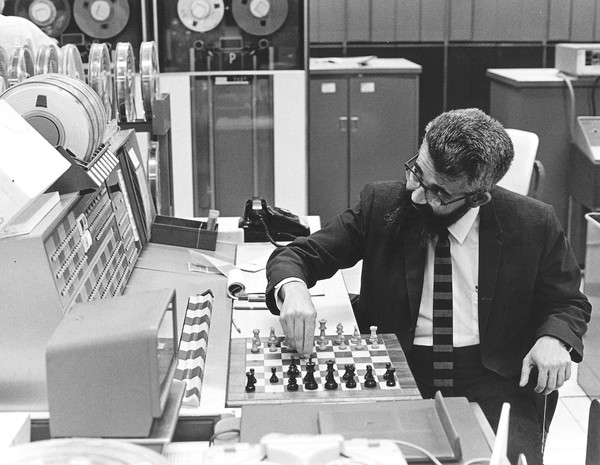
We create tools to do things that we can’t do or can’t do well or fast enough. As long as there have been tools, their ability to relieve us of this task or that (“skill fade,” it’s come to be called) seemed it might doom us. Not so. Digital watches didn’t make children dumb, unable to tell time, and offloading some of our memory to computers doesn’t erase our wetware. Thank heavens for the invention of typewriters and calculators and computers. These innovations are a key aspect of human progress, and usually we come up with new and interesting ways to use this freed-up bandwidth.
We should be careful when ceding life-and-death tasks to AI–robotic surgery, autopilot in aviation, etc.–but for the most part, new tools don’t impoverish us while enriching us. The opening of Ted Greenwald’s WSJ piece, “Will Smart Machines Make Us Stupid?“
Society stands at a crossroads of artificial intelligence: We can design computers that sharpen our wits or we can let our machines turn us into ignoramuses. That observation capped a provocative panel on Tuesday at Austin’s South By Southwest conference.
Increasingly intelligent machines — search engines that yield knowledge on demand, smartphones that understand plain English, computers that proffer medical diagnoses, ad tech that offers to sell you just what you’re looking for — represent a “tipping point,” said Doug Lenat, a former Stanford and Carnegie Mellon computer science professor who is CEO of Cycorp, a maker of machine reasoning software. “We could become smarter or dumber – much smarter or much dumber.”
Electronic calculators, Lenat argued during the panel entitled “AI State of the Union,” have created generations of students who can perform mathematical tasks very quickly but don’t understand the underlying concepts. Similarly, Google “swaddles” users in a blanket of instant information, relieving them of the burden of independent thought and inquiry. The next wave of artificial intelligence — loosely defined as a computer’s ability to distinguish between useful and useless information at any given moment — could propel us irrevocably down that path.
“This could lead to Idiocracy,” Lenat said, referring to the 2006 Hollywood satire about a future in which human intellect has taken a steep dive. The result would be a society “where no one has to understand anything about the world, where everything just seems like magic.”
Alternatively, he said, computer scientists could design artificial intelligence “to challenge us the way Aristotle challenged Alexander the Great, to make us smarter, more rational, more human, to understand the world more deeply.”•



